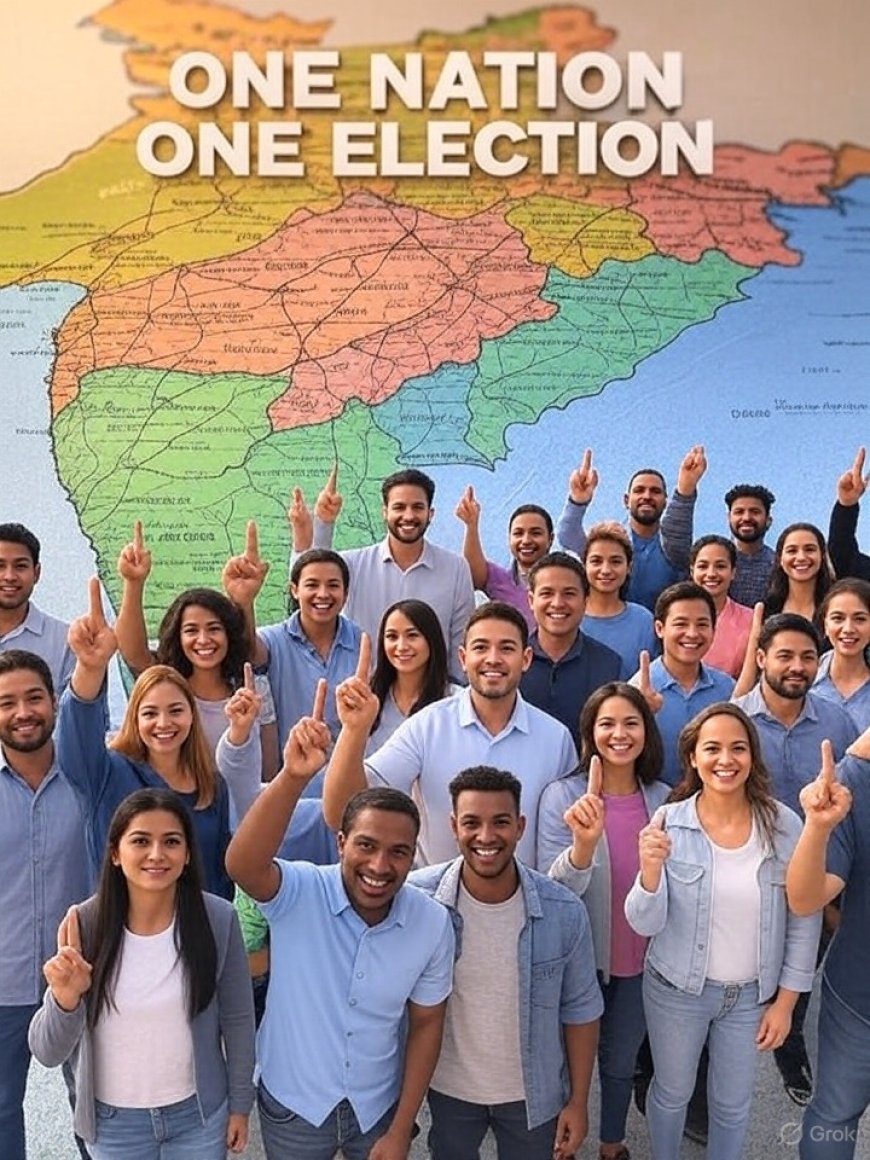Opposition Demands Debate on “One Nation, One Election” Amid Growing National Discontent
Opposition parties across India are calling for a transparent and inclusive debate on the One Nation, One Election proposal, raising concerns about federalism, electoral fairness, and executive overreach.

New Delhi — A Push for Unity or a Political Smokescreen?
The long-standing and controversial idea of “One Nation, One Election” has been jolted back into national focus—this time not by the ruling party, but by a coalition of opposition leaders. In a dramatic shift in narrative, the opposition bloc INDIA (Indian National Developmental Inclusive Alliance) is calling for a comprehensive debate on the feasibility, fairness, and federal implications of holding simultaneous elections across the country.
This counterproposal from the opposition is not necessarily in support of the plan, but rather a demand for greater public scrutiny and constitutional clarity before such a sweeping electoral reform is attempted.
“The government cannot bulldoze federal principles under the garb of electoral efficiency. We demand a parliamentary white paper and wider consultation,” said Congress leader Jairam Ramesh, in a recent press briefing on June 30.
What is “One Nation, One Election”?
The proposal seeks to synchronize elections to the Lok Sabha (Lower House) and all State Legislative Assemblies, thereby replacing the current staggered election calendar. The stated goal is to reduce election expenditure, policy paralysis, and the burden on administrative machinery.
The concept is not new. It was a norm in the early years after independence, until political instability in the 1960s and 70s led to staggered elections. Since then, the Election Commission of India (ECI) has conducted elections for different states and the Lok Sabha separately, often every few months.
For a historical timeline, see PRS India’s explainer on simultaneous elections.
Why Is the Opposition Pushing This Now?
Unlike earlier times when the opposition dismissed the idea outright, this time it is taking control of the narrative. The move comes amid speculation that the Modi-led government may call for early general elections or attempt to pass constitutional amendments to enable synchronization.
Opposition’s Core Concerns:
-
Threat to Federal Structure
Regional parties argue that simultaneous elections would dilute state autonomy and erode the diversity of India’s democratic fabric. -
Logistical and Legal Complexities
Constitutional amendments would be required in at least five different Articles, including Article 83 and Article 172, to align tenures of Parliament and state legislatures. -
Potential to Influence Voter Behavior
Critics suggest that a national narrative could dominate regional issues, disadvantaging smaller, regional parties during elections. -
No Empirical Evidence of Cost Savings
As per a Centre for Policy Research study, there is no definitive economic data supporting the massive savings the government claims.
Political Optics and Calculations
The opposition’s call for a debate is also seen as a strategic maneuver. By initiating the discussion on its own terms, the INDIA bloc is:
-
Framing the conversation as one of democratic values vs. authoritarian convenience
-
Positioning itself as the protector of constitutional federalism
-
Avoiding being seen as obstructionist without reason
“We are not against reforms. But reforms without consensus are repression,” said TMC MP Derek O'Brien on the floor of the Rajya Sabha, referencing the Law Commission’s consultation paper on simultaneous elections.
Public Opinion: Divided but Curious
According to a recent CVoter poll conducted for India Today, around 52% of respondents supported the idea of One Nation, One Election, citing cost and convenience. However, only 29% believed the current government would implement it without political bias.
Social media trends and civic forums show a growing demand for clarity, rather than blanket acceptance or rejection.
To read the full CVoter poll data, visit India Today’s political insights portal.
Legal Hurdles Remain Steep
Any serious move toward simultaneous elections would require:
-
Constitutional amendments passed by a two-thirds majority in both Houses of Parliament
-
Ratification by at least half of all state legislatures
-
Significant expansion of Election Commission infrastructure, including electronic voting machines (EVMs), security personnel, and polling stations
Legal experts such as Senior Advocate Harish Salve and Retd. Justice B.N. Srikrishna have warned that implementation without a phased transition model could create judicial gridlock and invite constitutional litigation.
BJP’s Response: Cautious, Yet Confident
Though the Modi government has not officially responded to the opposition’s call for debate, senior BJP leaders like Union Home Minister Amit Shah have, in the past, expressed strong support for simultaneous elections.
The BJP think tank, Vivekananda Foundation, has been actively publishing white papers in support of the plan. The latest, titled “Synchronizing Indian Democracy: One Nation, One Election”, outlines ten possible transition pathways.
Explore the full white paper at VIF India.
Final Word: A Democratic Litmus Test
The opposition’s decision to push for a debate rather than outright rejection marks a maturing phase in Indian electoral discourse. While the road to implementation is long and fraught with political and legal complexity, the demand for consensus, clarity, and caution is now at the center of national attention.
In a country as diverse and federal as India, electoral reforms cannot—and should not—be rushed. Whether or not “One Nation, One Election” ever becomes law, the debate surrounding it is likely to shape the future of Indian democracy for decades.














